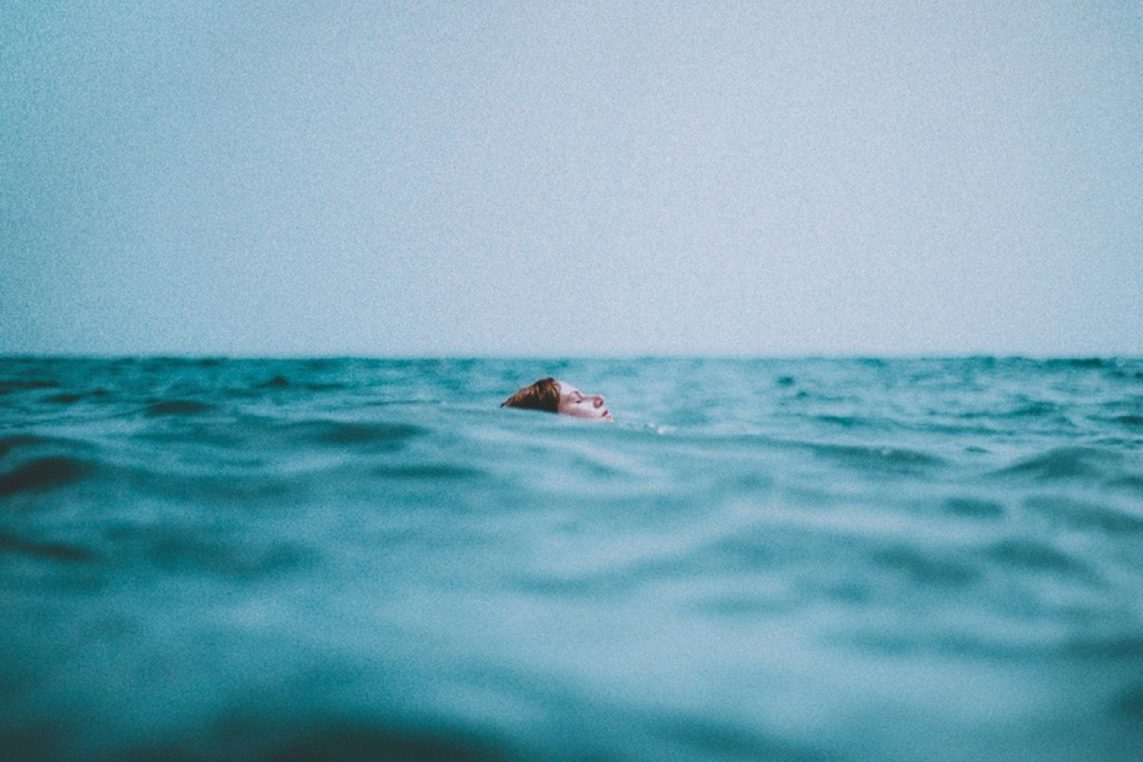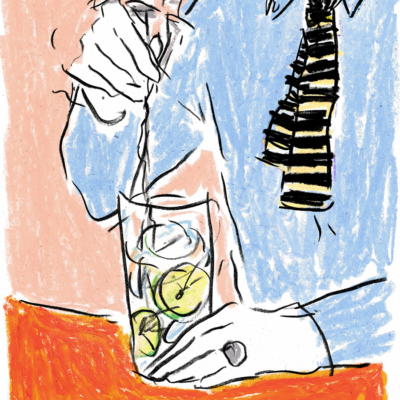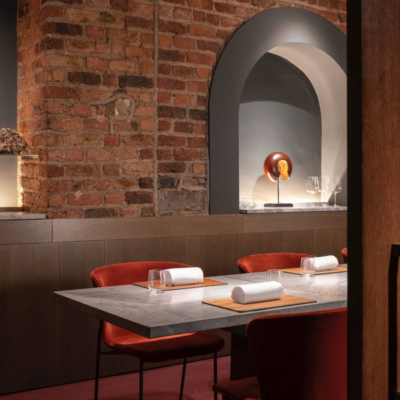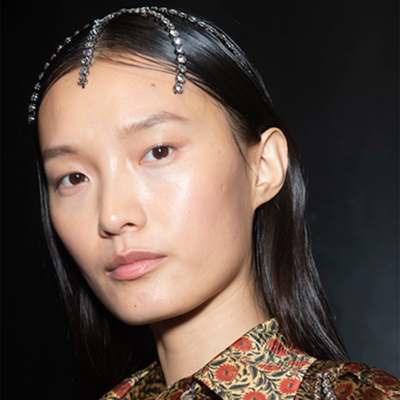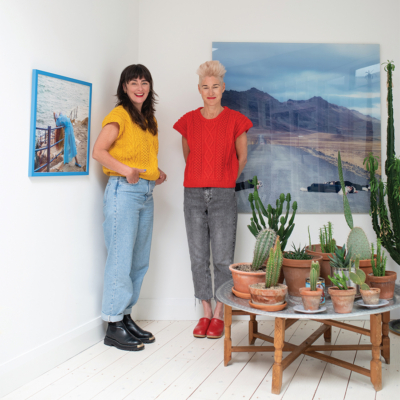University lecturer, author and outdoor swimmer Dr Catherine Kelly discovered sea swimming offered her huge solace after her mother died. She explains how she now teaches others how to love – and learn from – the water …
This is my fourth year of sea swimming all year round, and like so many people who have discovered “wild swimming”, it has had an enormous impact on my wellbeing. But my experience of water solace began over 25 years ago following the sudden death of my 47-year-old mother. I was a young, recent PhD graduate in my 20s, working in a university geography department in London when I got the call to say a random brain haemorrhage had killed her instantly. What followed was a stumbling of sorts, back “home” to Dublin first, and then to a wonderful job in what turned out to be the most healing of places – the wild Atlantic coast of Mayo.
In the aftermath of grief, when your mind and soul are numb and shocked, being by the sea can bring you back into your body. The wind, the cold water, the elements themselves, force you to feel something – which trauma, grief, depression, and other ailments can steal from you. They are all wounds, of sorts I think, and cleaning a wound with water, “letting the air at it”, helps it to heal. I spent six years in Mayo in and next to water, allowing myself to be buffeted, bathed and rebalanced.
Even though I was drawn there intuitively, it wasn’t until much later in my academic career that I learned that I was doing what is now central to research on blue space wellbeing, ecopsychology, and environmental connectedness. My work in the west of Ireland focused on natural heritage (a wonderful degree programme at GMIT, with archaeology, folklore, history, geography, geology, literature and landscapes) and was a lovely fit for my Natural Sciences degree from Trinity College and a UK PhD in human geography. Learning who we are, in the landscapes and seascapes of our place, is an immense yet simple joy.
After six years in the west, I was offered a post at a London University, where I still work now, while living in Brighton. My research has broadened out beyond heritage studies, to wider landscapes, wellbeing, and our human connections with natural places. Ten years ago, I also completed a BSc in Stress Management, and undertook various training courses in mindfulness for adults and children. For quite a while now, I have been an odd hybrid of academic, researcher, wellbeing practitioner and author. But it allows me to practice what I preach in a lovely way! I run ChillSquad, my own education-sector wellness programme for young people, Wild Blue School, Brighton, a coastal learning organisation, and Blue Spaces day retreats with various themes around wellbeing, grief and self-care. I suppose this is a roundabout way of saying that my academic and personal career twists and turns have since allowed me to name, analyse and practise how being near water helped me to cope all those years ago.
The term “bluespace” refers to all natural waters – oceans, seas, rivers, ponds, streams and waterfalls. If we want to be looser with the term, we can include fountains, canals, outdoor swimming pools and even our own bath or shower at home. Very simply, we now know that water makes us feel better. But how, and why? Let’s think first of all about the concept of wellbeing. In my own research I take this to comprise of three main components: physical wellbeing, psychological wellbeing and social wellbeing. Collectively they are all important to our sense of ourselves and our place in the world.
Up to 70 per cent of our human body is water – it is a natural habitat for us to occupy.
Firstly, water offers us a natural, enticing invitation to move. Moving our bodies increases our cardiovascular fitness, releases mood-enhancing endorphins and helps with muscle building and bone density improvement. A walk by the water is the preferred environment of many humans. Not only that, water allows us to swim in it, dive under it, sail and surf on it! Water invites us in. Up to 70 per cent of our human body is water – it is a natural habitat for us to occupy.
The second area of wellbeing that improves with blue space engagement is our psychological wellbeing – our mental health or stress levels. Research shows us that being in or next to water reduces our blood pressure, slows our breathing down and allows our parasympathetic nervous system to do its job. This is our “rest, repair and repose” system and is vital for effective brain function and a strong immune system. Water encourages us to relax, in other words. WJ Nichols refers to the idea of “blue mind”, a state where our brains are calmed by the presence of water. This is the opposite of “red mind” – or our “fight-flight-freeze” alarm response system that operates when we are under acute stress. Being in and near water reduces the stress hormones cortisol and adrenaline that course through our bodies and make us feel unwell.
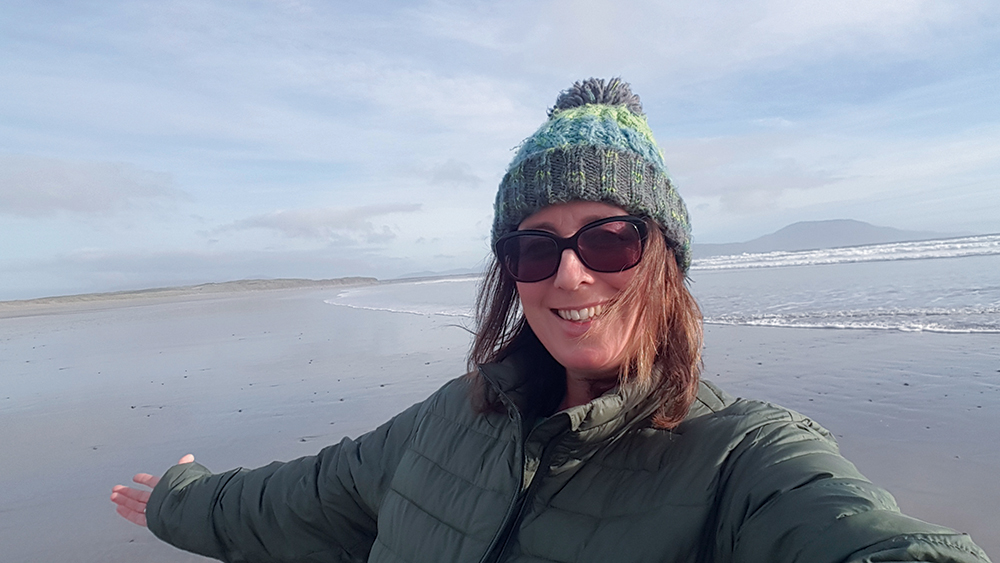
Interesting research is emerging too on the anti-inflammatory powers of cold water. We know that inflammation plays a role in many diseases and in depression and anxiety, for example. The vagus nerve winds its way through our bodies (literally a vagrant) and anti-depressants work to emulate the effects of this nerve. We know that immersing ourselves in cold water regularly stimulates this nerve to give us powerful mood-enhancing effects. Indeed, my lovely sea swimming tribe is often heard to shout “Vagus baby!” after a particularly cold swim! Outdoor swimming therefore, really is nature’s high, freely available. In addition, looking at water, the horizon, the sky and any surrounding habitats gives us a sense of awe, calm and perspective. In water, we come home to ourselves – our bodies and minds, in a way that few other places offer, so simply and effortlessly. As one of my research respondent’s put it, “water is inherently mindful, I don’t have to try at it. When I get into water, I am automatically at one with my breath and my body, focused, and all my worries just melt away.”
The third aspect of wellbeing I think is hugely important is that of social wellbeing. The idea of community is something that is tenuous in the world we live in now. But for many, the opportunity that comes with joining an outdoor swimming group has a huge bearing on social wellbeing and this overlaps very much with psychological mental health. We only need to look at the huge negative impact Covid lockdowns have had, where human contact has been cut or reduced, to see how much we really need each other. My research shows that this camaraderie, this acceptance of each other and of the water, is what keeps many people going back for more. For mothers who don’t speak to another adult all day, for single people living alone, or homeworkers, getting outside into nature, into the water with other likeminded souls, is the highlight of their day or week. My own tribe of “Salty Seabirds” in Brighton give me encouragement, friendship, shrieking laughter and a lot of cake. They have become an integral part of my life this past four years and I know it is the same for many people in Ireland too. And I do not care a jot what you wear, or don’t wear – that is missing the point, I think. The Japanese have a lovely phrase – “living water” – and it is this idea that we bring ourselves to the water in a reciprocal relationship. We pour our worries and emotions into this living water, and it takes them from us and we in turn look after it, our precious blue space.
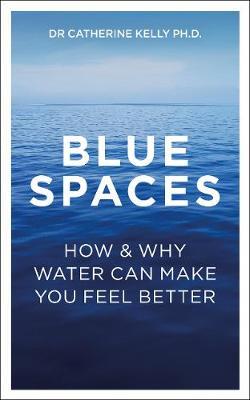
Blue Spaces: How and Why Water Can Make You Feel Better by Dr Catherine Kelly (Wellbeck Balance Publishing) is out now.
LOVETHEGLOSS.IE?
Sign up to our MAILING LIST now for a roundup of the latest fashion, beauty, interiors and entertaining news from THE GLOSS MAGAZINE’s daily dispatches.





